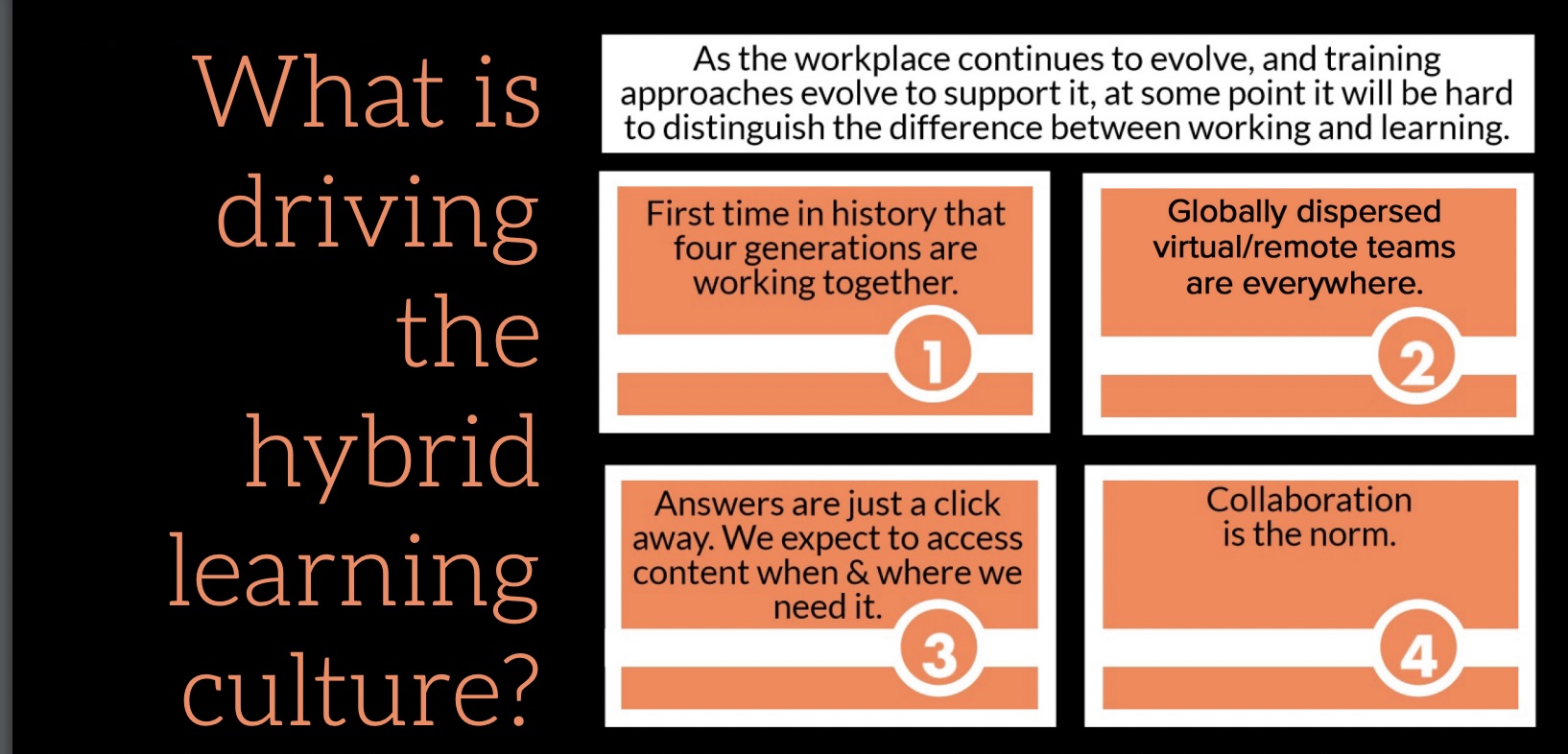Video - Teach Us One Thing - Myra Travin and Mark Sheppard
InSync Training’s interview series “Teach Us One Thing” provides learning industry experts with a platform to share the one idea they believe...

In the late 1800s, Skagen, a town at the very northern part of Denmark, was home to a group of what was then considered intellectual radicals. The group is mostly famous for painters such as P.S. Krøyer and Anna and Michael Anker and more, but other forward thinkers were involved as well. During the day these highly knowledgeable people would work on their projects, and in the evening they would gather at a hotel to eat, drink, and share ideas together. Creativity flourished and the group members became icons in Danish cultural heritage.
In England in the mid 1600s coffee houses were meeting places for people from all walks of life. These coffee houses had a profound impact on what became the Enlightenment period, with important scientific discoveries due to an exchange of ideas and the creation of new ones in the process. This was social learning in multicultural groups; spurred by an environment where people with different backgrounds, from different professional cultures, would meet, discuss, and share ideas, social learning happened continuously. This learning is also referred to as liquid networks, where knowledge flows freely. A network that resembles our brain, where new learning leads to new connections.
At a global leadership conference in Boston in 2012, a Japanese person presented a project that had developed in the aftermath of the 2011 tsunami. At the time, there was little information available about the effects of the storm, potentially due to a lack of data and to a lack of a useful system to inform the public. This presenter took the initiative to ask online if anybody was interested in exploring possibilities for improving these operations. In a short while, a team had gathered from around the world to develop both the technology to gather data as well as the ability to provide online information. The service they built turned out to be the most advanced in the world, developed by a multicultural and virtual group who had never met and who initially did not know a lot about the topic. However, while working in close collaboration they learned, together, how to make their system a success. The project was made possible by a clear and shared goal, an urgent need – and a preparedness to embark on the project with people they did not know.
The Human Centered Design (HCD) methodology is a development tool used to develop products, services, organizational process, and more. The HCD is a social learning process, where the developers and potential future users enter a close dialogue about the needs and possible solutions for the product. IDEO and +Acumen have made the HCD methodology free for all; +Acumen has courses online as well as a blend of learning tools available, where people from all over the world can learn about the process by doing projects – together.
Social learning is, in other words, closely connected to creativity: it happens when two ideas come in contact with one another. However, the more differences between the participants, the more likely the ideas are different and the more likely that communication between the two can break down. So active engagement becomes important and brings value to the process.
The challenge with social learning in a multicultural group is to create a trust environment and to avoid conflicts and a communication breakdown. Its strength, on the other hand, lies in the creative potential, the ability to see the same challenge from more angles and perspectives and to contribute to everyone’s knowledge. Lots of research and practical experience documents this dynamic. For example, if you assume the performance of a given monocultural group is average, then a poorly facilitated multicultural group will most likely perform worse due to conflicts that are handled poorly and a lack of trust. However, if well facilitated, the same multicultural group has the potential to outperform the monocultural group because ideas and knowledge are shared freely and it is acceptable – or even expected – to be challenged and to question others’ ideas.
To guide a social learning process involving a multicultural group of people takes intercultural competences (called “enabling competences”). For example, if an American facilitator can tolerate ambiguity – an enabling competence – then he is less likely to draw quick and inappropriate conclusions about participants from other cultures and will instead seek out information about the participants’ challenges or the specific cultural contextual circumstances. This demonstrates another enabling global competency – curiosity or openness.
Lists of needed intercultural competences can be found in various literature. What the materials all share is the idea that acquiring these enabling competences is in itself a social learning process. Both the facilitator and the participants engage in a transformational experience, a combination of unbuffered experiences in a culture different from one’s own followed by a sense-making coaching process. The intercultural component enables the facilitator to encourage cultural diversity and awareness, allowing for a comprehensive learning experience.
Social learning inspires creativity and happens in liquid networks. When we participate in social learning, we are driven by purpose, by a personal choice of engagement; we are self directed. For social learning to flourish, the context must support it and must be multicultural, virtual, and global. The tools and teachers we choose in our learning should reflect that context.

InSync Training’s interview series “Teach Us One Thing” provides learning industry experts with a platform to share the one idea they believe...

Today's hybrid workforce is more global, virtual, and mobile than ever before with a modern learning culture that is not only just about technology –...
Think about the last time you needed to learn something new. Were you sitting at your desk in your office? Standing in your kitchen trying to make...